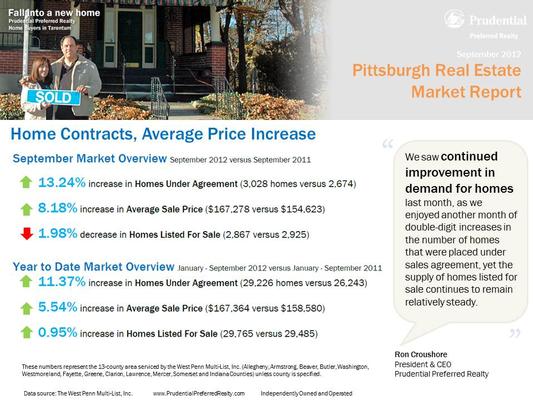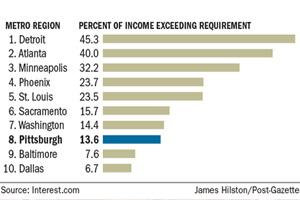
Ghouls, goblins, and ghosts… oh my! If you have yet to get your fill of all the spooky and scary things October is known for, we've got good news for you… there’s still time! Spend the next two weekends marching in costume parades, touring haunted houses and carving pumpkins. Whether you’re looking for a fun, family friendly event or a super scary, “adults only” experience, you’ll find it below.
Family Friendly Activities
Get the whole family in the Halloween spirit by attending one of these family-friendly events!
1. Halloween Mayhem
The 7th annual Halloween Mayhem has many activities for you and your family to enjoy and participate in! From a costume parade to live performances and way too many games to count, you are guaranteed to have a wonderful time.
Where: Kelly Strayhorn Theater 5941 Penn Ave
When: Saturday, October 24th from 12-4 PM
2. Ultimate Pet Costume Contest
Who wouldn’t love seeing a dog in a pumpkin costume?! Better yet, who wouldn’t love to participate in a pet costume contest?! This year Steel City Pet Expo is hosting a wonderful event full of cuddles and cuteness. Bring your furry best friend along to celebrate Halloween!
Where: Monroeville Convention Center - 209 Mall Plaza Boulevard Monroeville, PA 15146
When: Saturday, October 31 9-5 PM
3. Halloween Party in the Park
This Halloween party has it all! Bring the entire family to Pine Park to enjoy ghost stories, a hayride, crafts, a bonfire and, of course, a costume parade!
Where: Pine Park Gazebo
When: October 24th 1:00-4:00 PM
4. Monster Mini Golf
Monsters, ghouls and ghosts wanted! Spend your Halloween at the Monroeville Mall for this spooky and exhilarating mini golf course! The golf course is lit by a black light, making it even more exciting and unique. Test your skills and see if you have the courage to make it through this spooky golf course.
Where: 3813 William Penn Hwy. Monroeville, PA 15146
When: Monday- Thursday 2-9 Friday 2-10 Saturday 12-10 Sunday 12-8
5. ZooBoo
Dress up and wander through the Pittsburgh Zoo and PPG Aquarium collecting sweet treats and checking out the animal exhibits. The costume parade starts at 12:30PM at the PPG Aquarium patio by the polar bear exhibit.
Where: Pittsburgh Zoo and PPG Aquarium
When: October 24 and 25 from 10AM – 3PM
6. Owl'oween! Pumpkin, Owls and Bats!
The Children’s Department at Northland Public Library is an exciting place to be! Bring your family to create fun crafts, walk in a costume parade, play games, eat yummy treats and more! There will also be a costume parade through the library, so be sure to wear your favorite costume!
Where: Northland Public Library-Children’s Department
When: October 29, 2015 6:00-8:00 PM
7. TRUCK or TREAT
TRUCK or TREAT is a unique and fun way to celebrate this time of year! This event is exciting for all ages and free to attend. There will be food trucks lined up throughout the park, music and live entertainment for everyone! Kids can get a balloon from Debo the Clown, have their faces painted and go trick-or-treating! Adults can enjoy music by DJ Ronman and purchase drinks at select booths! Dress up and bring your friends, family and pets for this exciting and entertaining day!
Where: Schenley Plaza 4100 Forbes Avenue, Pittsburgh PA 15260
When: October 24th 1:00-8:00PM
8. Gateway Clipper - Halloween Monster Party
Sail the open seas with some of the city's spookest monsters on the Gateway Clipper's Halloween Monster Party.
Where: 350 West Station Square Drive Pittsburgh, PA 15219
When: October 24th Trip #1: 10:00-1:00PM Trip #2: 1:15-3:00PM
9. Carnegie Science Center - Family Halloween Laser Show
Do the Monster Mash during this spooky laser show! Kids will love it!
Where: 1 Allegheny Ave, Pittsburgh, PA 15212
When: October 24th, 25th, 26th, 30th and 31st (visit website for times)
10. Phipps Conservatory - Halloweens Happenings
The boo-tiful glassshouse features fun Halloween activities for all ages! Create your own spooky potted plants, check out the carved pumpkins and nom on some tasty treats!
Where: 1 Schenley Drive, Pittsburgh, PA 15213
When: October 30th 4:00-8:00PM
11. Children’s Museum - Boo to You Too
So much for the kiddos to do! Trick or treat through the musuem, decorate treat bags, have your face painted, make Halloween art, hear a Halloween story and much more!
Where: 10 Children's Way, Pittsburgh, PA 15212
When: October 30th 5:30-9:00PM
12. Aviary Owl-O-Ween
Wear your costume (bird-themed is always welcomed!) and get ready to have a hoot! Make crafts, meet owls and take pictures with some cool birds!
Where: 700 Arch St, Pittsburgh, PA 15212
When: October 24th and 31st 11:00-3:00PM
Adults Only!
Get a babysitter because these attractions are too scary for kids!
13. Haunted Hills Hayride
Hold onto your seat, you’re in for one scary ride! At the 16th annual Haunted Hills Hayride, you’ll never know what’s around the next corner but we bet it’ll give you nightmares!
Where: 500 Mosside Blvd., North Versailles PA 15137
When: October 23-25 and October 28-31 between 7PM and 11PM
14. Hobgoblin Hikes
This half mile hike takes you through mazes and haunted cemeteries. On the way, you’ll past over 100 goblins, ghouls and monsters!
Where: Northmoreland Park
When: Friday, October 30 from 7PM – 9PM
15. Hundred Acres Manor
Named the 2015 Best Halloween Attraction by the Travel Channel, this haunted attraction features six outrageously terrifying attractions. You’ll come face to face with zombies, creatures, monsters, ghosts and things you only see in your worst nightmares.
Where: 1 Hundred Acres Drive, Bethel Park PA 15102
When: October 23 – November 1 from 7PM – 11:30PM
16. The Scarehouse
The Scarehouse consistently tops national lists as one of the best haunted houses and there is good reason for that! This haunted attraction takes it one step further with their “The Basesment” attraction which actually requires you to sign a waiver before entering!
Where: 7340 Butler Street, Pittsburgh PA 15206
When: Thursdays – Sundays in October from 7PM – 12AM
17. Kennywood Phantom Fright Nights
Okay, we all know Kennywood is full of dreams and Potato Patch fries, but in October it’s a prime location for spooks and scares!
Where: Kennywood
When: Every Friday and Saturday in October
18. Zombies of the Corn
Love zombies! Then, this is for you! The main attraction: Zombie Shoot. That’s right, you get to fight off zombies with paintball guns.
Where: 282 Rochester Road, Freedom PA 15042
When: Weekends until November 1
19. Haunted Pittsburgh Tours
Discover some of the most haunted places in downtown Pittsburgh during this guided walking tour. You’ll visit the haunted areas in person as you learn about their ghost stories.
Where: Downtown Pittsburgh
When: Fridays and Saturday at 7PM
Post Halloween
For those who just can't get enough of Halloween!
20. Great Pumpkin Smash
Halloween may be over, but there is one last thing we all still have to do. Throw away our pumpkins. Instead of throwing your jack-o’-lanterns away in the garbage, make it a fun filled activity for the kids. Come to the Science Center and roll them off the roof or join the Smash-ologists for the annual Great Pumpkin Smash!
Where: 1 Allegheny Ave, Pittsburgh, PA 15212
When: November 7th 10:00-5:00PM
 By Chris Petry
By Chris Petry


 By Chris Petry
By Chris Petry
 By Chris Petry
By Chris Petry




 By Chris Petry
By Chris Petry By Chris Petry
By Chris Petry Julie Rost was recently ranked as the top agent in our local network of Berkshire Hathaway HomeServices The Preferred and Stouffer Realty, serving Western, Pennsylvania and Northeastern, Ohio. Julie is based out of our City of Pittsburgh Regional Office, on the corner of Forbes and Murray, in the Squirrel Hill neighborhood of Pittsburgh. She is ranked as one of the top REALTORS in the West Penn Multilist and has consistently obtained Chairman’s Circle designation, or the highest ranked category of agents nationally. In other words, if you’re eyeing a career in real estate, there’s no better role model for success than Julie Rost.
Julie Rost was recently ranked as the top agent in our local network of Berkshire Hathaway HomeServices The Preferred and Stouffer Realty, serving Western, Pennsylvania and Northeastern, Ohio. Julie is based out of our City of Pittsburgh Regional Office, on the corner of Forbes and Murray, in the Squirrel Hill neighborhood of Pittsburgh. She is ranked as one of the top REALTORS in the West Penn Multilist and has consistently obtained Chairman’s Circle designation, or the highest ranked category of agents nationally. In other words, if you’re eyeing a career in real estate, there’s no better role model for success than Julie Rost. There’s that word. “Flexibility.” Is it true that one of the reasons people choose a career in real estate is the suggestion of a more flexible work schedule? Julie suggests that the flexibility is more about how flexible you can be with your clients. “There’s a perception and there’s reality,” she notes. “We think we get to make our own schedules but we’re ultimately at the service of our clients and their schedules. You have to be willing to accommodate them. That’s what’s most important.”
There’s that word. “Flexibility.” Is it true that one of the reasons people choose a career in real estate is the suggestion of a more flexible work schedule? Julie suggests that the flexibility is more about how flexible you can be with your clients. “There’s a perception and there’s reality,” she notes. “We think we get to make our own schedules but we’re ultimately at the service of our clients and their schedules. You have to be willing to accommodate them. That’s what’s most important.” So it seems, there’s a lot to consider when choosing a career in real estate. Just don’t let that be a deterrent! As Julie said above, the business is always changing. That means, your personal business as well as the industry. Staying aware of that and implementing change is necessary for long term success. Julie herself has made major changes to her business model over the years. After working nearly 15 years as a solo agent, she decided to form a real estate team to better service her expanded clientele. “That was a transition,” she says.“Forming a team 15 years into my career. There’s no growth without that change, though. It was necessary to uphold my philosophy of prioritizing client needs. Even after the closing.”
So it seems, there’s a lot to consider when choosing a career in real estate. Just don’t let that be a deterrent! As Julie said above, the business is always changing. That means, your personal business as well as the industry. Staying aware of that and implementing change is necessary for long term success. Julie herself has made major changes to her business model over the years. After working nearly 15 years as a solo agent, she decided to form a real estate team to better service her expanded clientele. “That was a transition,” she says.“Forming a team 15 years into my career. There’s no growth without that change, though. It was necessary to uphold my philosophy of prioritizing client needs. Even after the closing.” By Chris Petry
By Chris Petry by Chris Petry
by Chris Petry







 by Chris Petry
by Chris Petry by Chris Petry
by Chris Petry









 by Chris Petry
by Chris Petry










 by Chris Petry
by Chris Petry by Chris Petry
by Chris Petry by Chris Petry
by Chris Petry by Chris Petry
by Chris Petry by Chris Petry
by Chris Petry by Chris Petry
by Chris Petry 1. Glengarry Glen Ross (1992, Starring Al Pacino, Jack Lemmon, Alec Baldwin)- The Gold standard of real estate movies, Glengarry Glenn Ross was adapted from the Pulitzer Prize-winning stage play by revered playwright David Mamet. The plot focuses on a handful of real estate agents, threatened by the hard truths of a motivational speaker, to desperately increase their business in only a couple of days.
1. Glengarry Glen Ross (1992, Starring Al Pacino, Jack Lemmon, Alec Baldwin)- The Gold standard of real estate movies, Glengarry Glenn Ross was adapted from the Pulitzer Prize-winning stage play by revered playwright David Mamet. The plot focuses on a handful of real estate agents, threatened by the hard truths of a motivational speaker, to desperately increase their business in only a couple of days. 1. Glengarry Glen Ross (1992, Starring Al Pacino, Jack Lemmon, Alec Baldwin)- The Gold standard of real estate movies, Glengarry Glenn Ross was adapted from the Pulitzer Prize-winning stage play by revered playwright David Mamet. The plot focuses on a handful of real estate agents, threatened by the hard truths of a motivational speaker, to desperately increase their business in only a couple of days.
1. Glengarry Glen Ross (1992, Starring Al Pacino, Jack Lemmon, Alec Baldwin)- The Gold standard of real estate movies, Glengarry Glenn Ross was adapted from the Pulitzer Prize-winning stage play by revered playwright David Mamet. The plot focuses on a handful of real estate agents, threatened by the hard truths of a motivational speaker, to desperately increase their business in only a couple of days.





 Berkshire Hathaway HomeServices Stouffer Realty is proud to announce the Berkshire Hathaway HomeServices Pawfect Home Sweepstakes, where individuals can enter for a chance to win a custom-built, pint-sized replica of their own home for their loyal companion.
Berkshire Hathaway HomeServices Stouffer Realty is proud to announce the Berkshire Hathaway HomeServices Pawfect Home Sweepstakes, where individuals can enter for a chance to win a custom-built, pint-sized replica of their own home for their loyal companion. Berkshire Hathaway HomeServices The Preferred Realty is proud to announce the Berkshire Hathaway HomeServices Pawfect Home Sweepstakes, where individuals can enter for a chance to win a custom-built, pint-sized replica of their own home for their loyal companion.
Berkshire Hathaway HomeServices The Preferred Realty is proud to announce the Berkshire Hathaway HomeServices Pawfect Home Sweepstakes, where individuals can enter for a chance to win a custom-built, pint-sized replica of their own home for their loyal companion.























 Searching for a new home is difficult. Potential buyers often have to balance their wants with their needs and try to prioritize factors like location, price, and size. What many house hunters don’t think about during their search is how complicated the process can get after you find the perfect home. That’s when the paperwork starts and a flood of confusing terminology begins. To help you talk the talk, we’ve broken down some of the most commonly used real estate lingo you might hear during the process.
Searching for a new home is difficult. Potential buyers often have to balance their wants with their needs and try to prioritize factors like location, price, and size. What many house hunters don’t think about during their search is how complicated the process can get after you find the perfect home. That’s when the paperwork starts and a flood of confusing terminology begins. To help you talk the talk, we’ve broken down some of the most commonly used real estate lingo you might hear during the process. Have you ever thought of having a career in real estate? If so, you have probably imagined some of the fantastic personal and financial benefits that can come from being an agent. While there are countless reasons why people want to sell houses, we’ve listed four of the most popular for anyone curious about becoming a real estate agent.
Have you ever thought of having a career in real estate? If so, you have probably imagined some of the fantastic personal and financial benefits that can come from being an agent. While there are countless reasons why people want to sell houses, we’ve listed four of the most popular for anyone curious about becoming a real estate agent. The internet has enough information to turn almost any beginner into an experienced do-it-yourselfer. Have a running toilet? Check out a couple of YouTube videos, and the next thing you know you are replacing the float, flapper, chain, and now have a perfectly quiet toilet. Never planned a dinner party? Stop by Pinterest, and your guests will think you hired Martha Stewart. But while the web has great tools to assist with buying or selling a house, it cannot provide the skills you will require from an experienced licensed real estate agent.
The internet has enough information to turn almost any beginner into an experienced do-it-yourselfer. Have a running toilet? Check out a couple of YouTube videos, and the next thing you know you are replacing the float, flapper, chain, and now have a perfectly quiet toilet. Never planned a dinner party? Stop by Pinterest, and your guests will think you hired Martha Stewart. But while the web has great tools to assist with buying or selling a house, it cannot provide the skills you will require from an experienced licensed real estate agent.  When you buy or sell a home, you are taking part in one of the biggest financial transactions you’ll ever make. Though certainly rewarding from either side, the entire process can be physically, mentally and emotionally draining. But what happens when this duty is given to you? What happens when you inherit a property? Well, for starters, things can get even more emotionally-charged and complicated.
When you buy or sell a home, you are taking part in one of the biggest financial transactions you’ll ever make. Though certainly rewarding from either side, the entire process can be physically, mentally and emotionally draining. But what happens when this duty is given to you? What happens when you inherit a property? Well, for starters, things can get even more emotionally-charged and complicated. We recently shared some news that might have you
We recently shared some news that might have you  The end of January is upon us, which serves as a good reminder of all those well-intended resolutions we set for the new year. Do you have your sights set on a professional move this year? And, no, we’re not talking about relocating for your job. Instead, we’re talking about starting an entirely new career path.
The end of January is upon us, which serves as a good reminder of all those well-intended resolutions we set for the new year. Do you have your sights set on a professional move this year? And, no, we’re not talking about relocating for your job. Instead, we’re talking about starting an entirely new career path. Pencils and books are bought, lunches are packed and this year’s slew of back-to-school ads have pretty much everyone looking stylish and at least attempting to do the floss! Yep, from pre-K to post-doctoral, most students across the country are back in class—or at least they’re more than ready to be there.
Pencils and books are bought, lunches are packed and this year’s slew of back-to-school ads have pretty much everyone looking stylish and at least attempting to do the floss! Yep, from pre-K to post-doctoral, most students across the country are back in class—or at least they’re more than ready to be there. For a real estate agent who is always on the go, keeping track of numerous showings, closings and other appointments while constantly communicating with clients and other professionals can be quite difficult. Luckily, there is an app for that. In fact, there are quite a few mobile apps out there that can make it much easier for real estate agents to juggle multiple responsibilities—and deliver stellar service. If you’ve got your smartphone in tow, using apps can help you stay connected no matter where you are.
For a real estate agent who is always on the go, keeping track of numerous showings, closings and other appointments while constantly communicating with clients and other professionals can be quite difficult. Luckily, there is an app for that. In fact, there are quite a few mobile apps out there that can make it much easier for real estate agents to juggle multiple responsibilities—and deliver stellar service. If you’ve got your smartphone in tow, using apps can help you stay connected no matter where you are. The school year is winding down, which means that soon, many more motivated home buyers will be entering the real estate market with high hopes of settling into a new home before another school year begins. For sellers, that’s great news—as long as they’re properly marketing their home. For other buyers—an influx in competition could be detrimental to finding the right home.
The school year is winding down, which means that soon, many more motivated home buyers will be entering the real estate market with high hopes of settling into a new home before another school year begins. For sellers, that’s great news—as long as they’re properly marketing their home. For other buyers—an influx in competition could be detrimental to finding the right home.









 With the first full week of 2016 nearly under our belts, we can all breathe a sigh of relief that we’ve almost made it through this seemingly never-ending week that follows the holidays. Sure, you may have hit the snooze button a few extra times and it may have taken a few days to readjust to your morning commute; but, the week is nearly over now.
With the first full week of 2016 nearly under our belts, we can all breathe a sigh of relief that we’ve almost made it through this seemingly never-ending week that follows the holidays. Sure, you may have hit the snooze button a few extra times and it may have taken a few days to readjust to your morning commute; but, the week is nearly over now.























 1. mileIQ -- Tell the truth: every year around tax season, you wish you had done a better job of accounting for all those driving miles you put on last year, right? Whether heading to an open house, previewing homes, or carting your clients all over town, each and every one of those miles is tax deductible! But we all know that most agents do a lousy job of tracking these miles and end up losing out on vital deductions. Well, your days of lost deductions are over. Welcome to mileIQ -- an innovative mile-logging app that makes keeping track of where you go not just easy, but effortless. By using a GPS monitoring system that runs in the background of your mobile operating system, mileIQ keeps track of every single trip you take in your vehicle, without you having to remember to press a single button. All you have to do is sort the data by opening the app every once in a while to view a list of recent trips, then categorizing those miles by swiping left (for personal) or right (for business). You can even further subdivide your business trips with a one-touch system, sorting mileage into groups like meals, meetings and customer visits. I tend to open the app about once a week to do my swiping, but no worries if you're not that punctual -- the app saves the trip data no matter how long you wait to categorize it. I adore this app because it's the first mile tracker I have seen that doesn't require you to input anything yourself. It does it all for you! Oh, and the app is free to collect data for up to 30 trips per month -- enough for most agents.
1. mileIQ -- Tell the truth: every year around tax season, you wish you had done a better job of accounting for all those driving miles you put on last year, right? Whether heading to an open house, previewing homes, or carting your clients all over town, each and every one of those miles is tax deductible! But we all know that most agents do a lousy job of tracking these miles and end up losing out on vital deductions. Well, your days of lost deductions are over. Welcome to mileIQ -- an innovative mile-logging app that makes keeping track of where you go not just easy, but effortless. By using a GPS monitoring system that runs in the background of your mobile operating system, mileIQ keeps track of every single trip you take in your vehicle, without you having to remember to press a single button. All you have to do is sort the data by opening the app every once in a while to view a list of recent trips, then categorizing those miles by swiping left (for personal) or right (for business). You can even further subdivide your business trips with a one-touch system, sorting mileage into groups like meals, meetings and customer visits. I tend to open the app about once a week to do my swiping, but no worries if you're not that punctual -- the app saves the trip data no matter how long you wait to categorize it. I adore this app because it's the first mile tracker I have seen that doesn't require you to input anything yourself. It does it all for you! Oh, and the app is free to collect data for up to 30 trips per month -- enough for most agents. 2. 1Password -- Remembering all your passwords, logins, and credit card information is next to impossible, but storing them in one truly secure place is pretty difficult, too. Confession time: how many of us just put all this precious data on a spreadsheet and place it in Dropbox? For some that may be relatively efficient, but it's hardly safe! There is a much more secure and user-friendly solution: 1Password. This app is like a digital, cross-platform, virtual safety deposit box that stores all your vital info in one place. By running in the background of your operating system, this app can autofill your login and password, membership IDs, contact information, payment information, and any other data you choose when logging into web pages or filling out forms online. And because it is cloud-based, the app's data can be shared across your smartphone, desktop, and tablet. You can even save private notes to yourself or any other text-based data you want to keep secure. And like the name suggests, all you need to do now is remember one password; the rest is up to the app! I can't recommend this one highly enough. Try it today.
2. 1Password -- Remembering all your passwords, logins, and credit card information is next to impossible, but storing them in one truly secure place is pretty difficult, too. Confession time: how many of us just put all this precious data on a spreadsheet and place it in Dropbox? For some that may be relatively efficient, but it's hardly safe! There is a much more secure and user-friendly solution: 1Password. This app is like a digital, cross-platform, virtual safety deposit box that stores all your vital info in one place. By running in the background of your operating system, this app can autofill your login and password, membership IDs, contact information, payment information, and any other data you choose when logging into web pages or filling out forms online. And because it is cloud-based, the app's data can be shared across your smartphone, desktop, and tablet. You can even save private notes to yourself or any other text-based data you want to keep secure. And like the name suggests, all you need to do now is remember one password; the rest is up to the app! I can't recommend this one highly enough. Try it today.


























 4. The Arts and Sciences – In addition to a bustling cultural district that attracts everything from Broadway shows to top comedians and musicians, Pittsburgh is packed with museums, too. Whether your interests lie with Andy Warhol or natural history, Pittsburgh has something for everyone. Even if you’re just looking into Pittsburgh real estate, the Carnegie Science Center and the Children’s Museum should be two places on your “to visit” list while you’re in town.
4. The Arts and Sciences – In addition to a bustling cultural district that attracts everything from Broadway shows to top comedians and musicians, Pittsburgh is packed with museums, too. Whether your interests lie with Andy Warhol or natural history, Pittsburgh has something for everyone. Even if you’re just looking into Pittsburgh real estate, the Carnegie Science Center and the Children’s Museum should be two places on your “to visit” list while you’re in town. 7. The Food – Speaking of food, what other city do you know that puts coleslaw on sandwiches and French fries on… well, everything? Ethnic foods like pierogies and classic favorites like Primanti’s are two great reasons to begin looking for homes for sale in Pittsburgh today.
7. The Food – Speaking of food, what other city do you know that puts coleslaw on sandwiches and French fries on… well, everything? Ethnic foods like pierogies and classic favorites like Primanti’s are two great reasons to begin looking for homes for sale in Pittsburgh today.


























